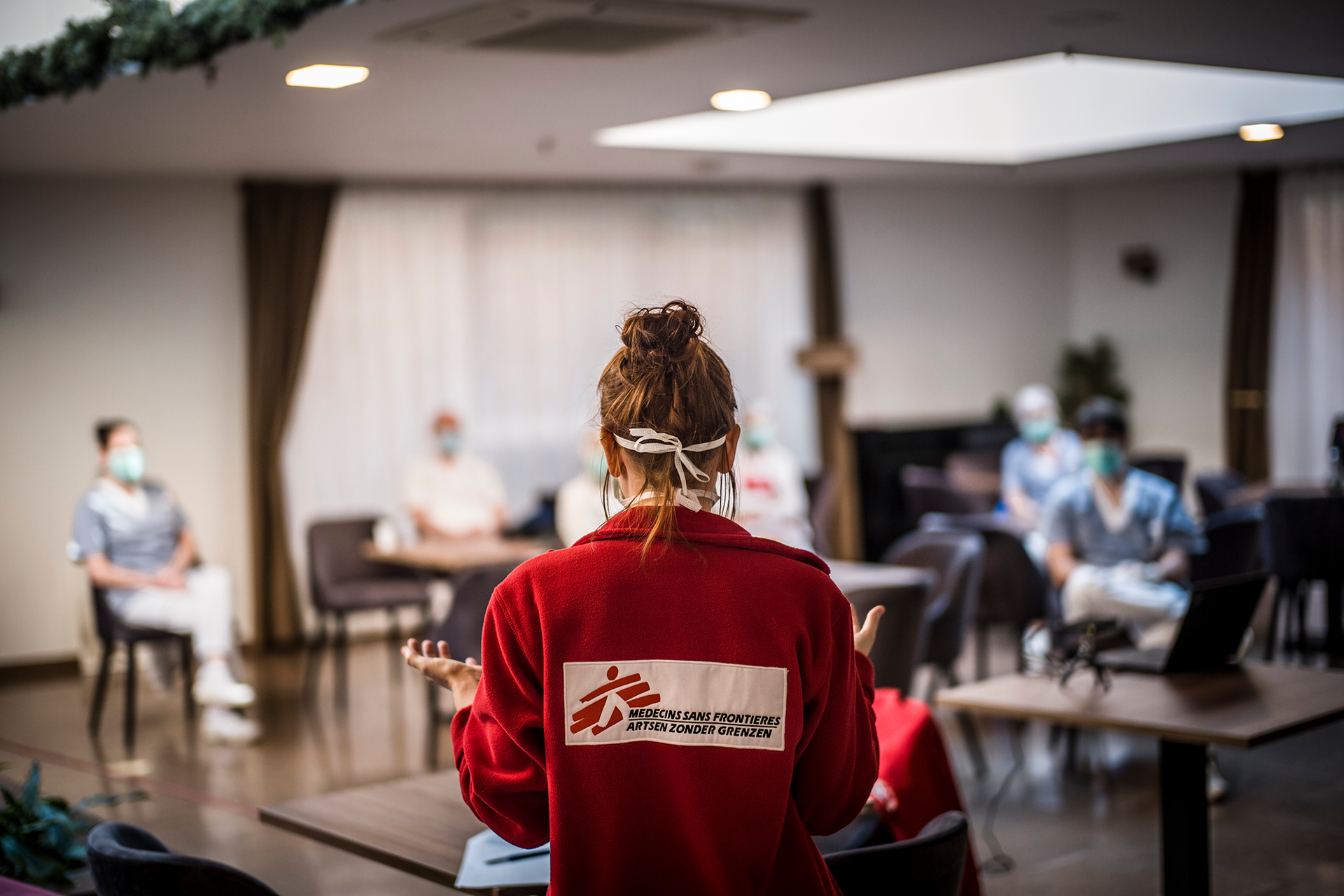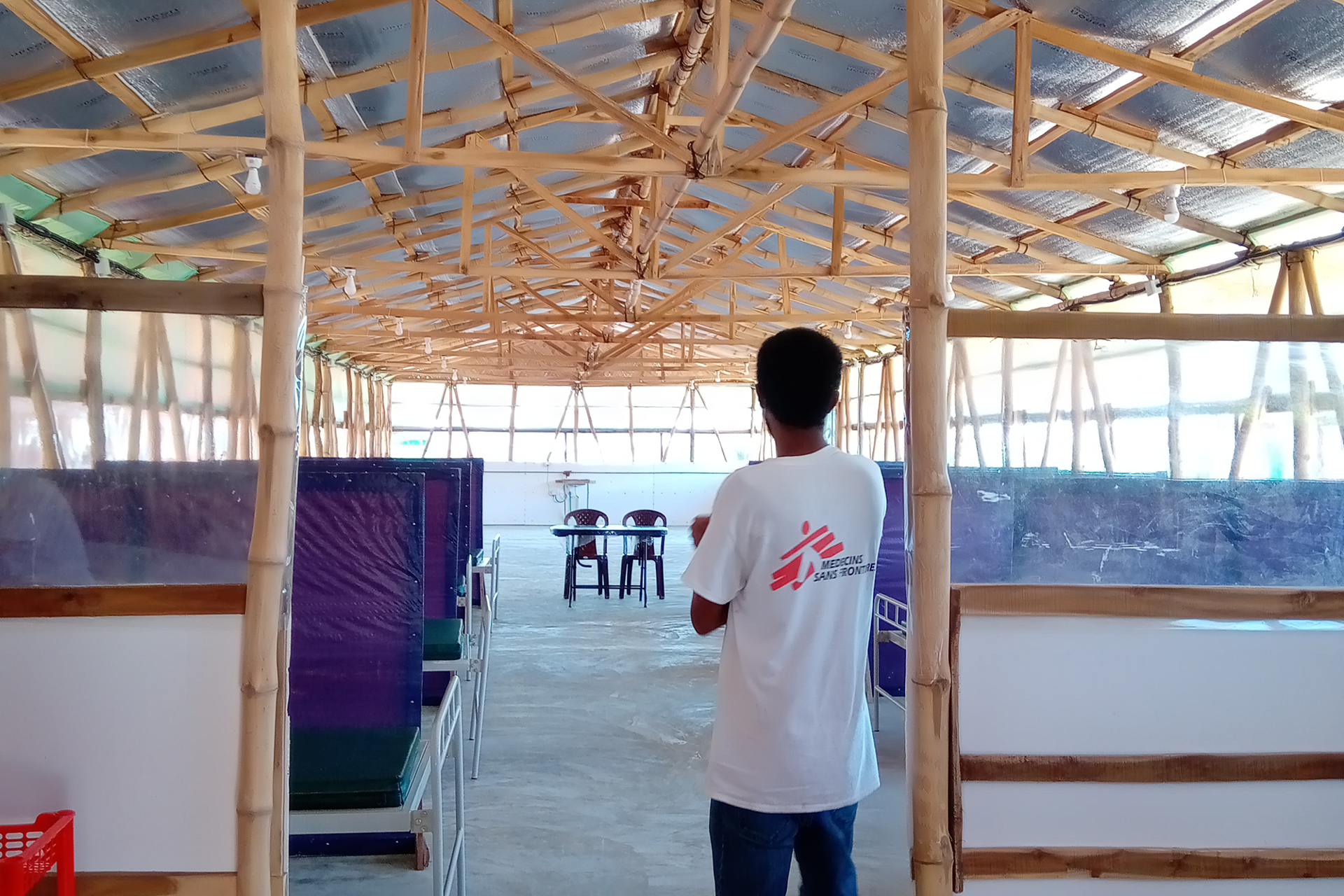In our report, Left Behind in the Time of COVID-19, MSF gives a detailed account of our intervention in nursing care homes in Belgium during the coronavirus COVID-19 pandemic, describing the situation a real humanitarian crisis. The report contains a list of concrete recommendation to avoid the repetition of this drama if a second wave of the new coronavirus hits the country.
“If we want to be better prepared for a second wave, we need to learn lessons from the past months,” says Dr Bertrand Draguez, President of MSF Belgium and coordinator of the intervention.
There was a real fear that hospitals would be overwhelmed, as had happened in Italy and Spain, and therefore Belgian authorities focused solely on preserving hospital capacity. As a result, nursing care homes were neglected. They suffered from a lack of protective equipment, material, staff and expertise to fight the pandemic. Consequently, care homes paid a high price: by the end of June, 6,200 care home residents had died of COVID-19, which is 64 per cent of all COVID-19 deaths in Belgium.
In Belgium, during the COVID-19 pandemic:
- 6,200 people in nursing care homes died
- 64% of all COVID-19 deaths lived in care homes
- 54% of care homes had adequate PPE at one point
“At the time we did our assessments in care homes, only 54% of them had sufficient personal protective equipment; 64% had a lack of FFP2-masks, and only 42% of the staff doing the laundry had access to proper protective equipment”, said Stéphanie Goublomme, who managed the care home project.
More than half of the care homes said their staff didn’t have sufficient knowledge about the disease and the risk of infection.
The possibility to refer patients from care homes to external medical services, most notably hospitals, decreased significantly. Before the crisis, 86% of care home residents who needed a hospital referral were admitted, but this dropped to 57% during the pandemic.
“Almost a third—30%—of the care homes we visited told us not even all their emergency calls got an adequate answer,” said Goublomme. “The number of visits by general practitioners to care homes decreased 50%. That’s worrying, because it had a clear impact of the quality of care for the residents.”
Nursing care home staff were overwhelmed and had to work in extreme conditions, which led to an increase of mental health problems and the appearance of post-traumatic stress symptoms. This was observed in staff as well as residents.
“There’s no time to lose. We need to tackle the specific problems of care homes in a fast, practical, and effective way, both for the staff and for the residents. This is the only way to avoid that our elderly will again have to pay the price for our indifference,” said Dr Bertrand Draguez.



